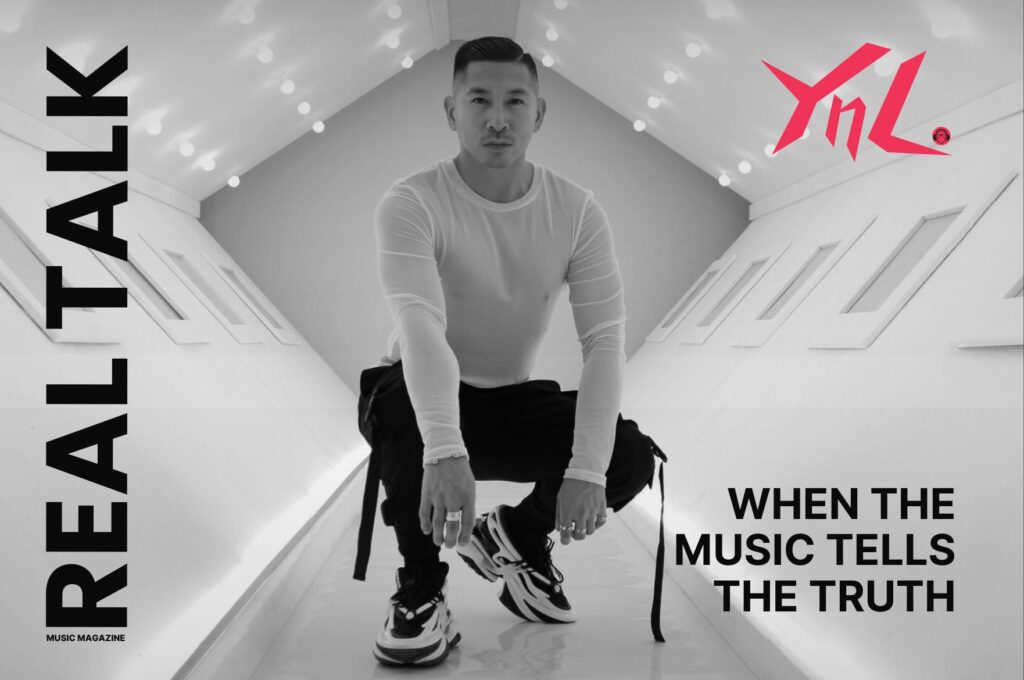Now Reading: How Hyper-Individualism is Reshaping Sound, Connection, and the Industry Itself –
-
01
How Hyper-Individualism is Reshaping Sound, Connection, and the Industry Itself –
How Hyper-Individualism is Reshaping Sound, Connection, and the Industry Itself –

Individualism used to be a spirit of liberation in music. It gave birth to punk, to DIY scenes, to sonic revolutions that refused to bow to the mainstream. But now, as individualism drifts further from defiance and closer to isolation, its impact is less utopian and more disquieting. In the digital age, music has never been more accessible or customisable. You can have a personalised Spotify DJ that serves you handpicked tracks based on your listening data. You can produce an entire album from your bedroom without speaking to another soul. You can curate your listening experience to such a degree that you forget music was once about connection, chaos, and shared experiences.
We’re living through a cultural pivot, one where collective rituals are vanishing and algorithms are replacing intimacy. Music, once a communal lifeline, now risks becoming just another mirror reflecting back the self. And while this new frontier promises creative autonomy and algorithmic efficiency, it’s also giving rise to a deeper cultural malaise: the loneliness of sonic solipsism.
This piece explores how hyper-individualism is affecting how music is made, consumed, and felt, and what that means for the future of musicianship, culture, and the human need to not just hear music, but feel part of it.
Spotify’s DJ is a Mirror, Not a Gatekeeper
The rise of Spotify’s AI DJ feature might seem like a harmless or even helpful innovation—a smooth-talking digital companion that serves up personalised tracks based on your mood and habits. But let’s call it what it really is: a step further away from discovery through coincidence or community. It’s the digital equivalent of sitting alone at a jukebox in a soundproof room, choosing your soundtrack while the world rages on outside.
This isn’t about dismissing technology. The tool is sleek, smart, and eerie in how well it knows your tastes. But that’s exactly the problem. It reaffirms the echo chamber that platforms have already pushed us into. You’re no longer nudged toward new genres by the weird older friend with eclectic taste, or the chaotic blend of sounds coming from a stranger’s aux cord. Instead, your AI DJ reinforces the boundaries of your bubble, feeding you what you already like, with very little room for friction or surprise.
The communal experience of radio, once a mass broadcast that brought together binmen and baristas, teens and retirees, has been reduced to a whisper tailored to your own algorithmic cage. It’s curated convenience, but it also marks a shift away from music as a shared cultural thread.
The Bedroom Is a Studio and a Cell
There’s been a beautiful rebellion in the rise of self-produced artists. The tools of the trade have been democratised. Anyone with a laptop and a cracked copy of Ableton can create a track that rivals the production quality of major-label releases. It’s empowering. It’s accessible. But there’s a shadow to this narrative that isn’t getting enough attention.
More and more artists are making music alone. Not just writing it, but mixing, mastering, marketing, and releasing it, all without ever being in the same room as another musician. Collaboration, once the beating heart of bands and studio collectives, is now often reduced to remote stems bounced back and forth via Google Drive.
This isn’t a romantic solitude. It’s a reflection of a culture that rewards self-sufficiency over synergy. And while it can lead to pure creative control, it can also create a hollow process, where the joy of shared inspiration gets lost in the workflow. There’s a reason band practices in garages birthed movements. Something gets diluted when every artist is a one-person island, sculpting songs alone with the glow of a screen for company.
Gen Z Loneliness and the Loss of Sonic Communion
The loneliness epidemic isn’t a buzzword; it’s a documented crisis, especially among Gen Z. And it’s not just impacting mental health—it’s reshaping how people engage with art. Where once teenagers formed bands to escape suburbia or found kinship in cramped venues, now there’s a generation growing up with music as a solitary ritual. Earbuds in, world out. Playlists for every mood but rarely for shared moments.
The decline in grassroots venues and local scenes has only made things worse. It’s no longer easy or affordable to gather, play, or even watch live music. The cultural scaffolding that once held together youth scenes is eroding. What’s left is a kind of sonic individualism that mimics connection but rarely delivers it.
Even fandom has been atomised. It used to be tribal, sometimes toxic but often transcendent. Now it’s siloed, performative, reduced to streaming stats and Instagram reels. The communal magic of music—sweaty rooms, screamed lyrics, spontaneous harmonies—feels increasingly distant, replaced by solitary rituals powered by algorithms and AI voices.
The Cult of the Self and the Death of Shared Identity
Music used to be where collective identity found its soundtrack. Whether it was through punk’s politics, rave’s release, or hip-hop’s resistance, genres forged bonds that transcended geography and class. Now, with identity flattened into aesthetic and taste turned into branding, music often serves the self-image more than it shapes it.
We’re deep into the age of the personal brand, where even musicians have to pitch themselves as products before they get the chance to be heard. Authenticity still matters, but it’s filtered through the lens of virality and monetisable relatability. The result? A cultural climate where making music is less about channeling truth and more about fitting into algorithms or cultivating niche appeal.
Individualism in this form isn’t freedom; it’s pressure. The pressure to do it all alone, to market yourself, to be the writer, producer, publicist, content creator, and brand strategist. This kind of self-reliance breeds burnout. It shrinks the soul of what music could be—a vessel for empathy, storytelling, and communion—and turns it into a treadmill of visibility and optimisation.
What Happens When We Lose the We?
The deeper danger is what this trend says about culture more broadly. If we keep prioritising individualism at the expense of collaboration, community, and chaos, what’s left? A cultural landscape where every artist is trapped in their own orbit, where every listener is sealed in their own curated world, and where music exists as content, not connection.
It doesn’t have to be this way. There’s still time to pivot. There are still scenes fighting to stay alive, venues stubbornly keeping their doors open, collectives forming in the cracks of late capitalism. What we need is more friction, more mess, more moments that drag us out of ourselves and into something shared.
Because music isn’t just meant to be consumed, it’s meant to be felt together. Whether it’s in a mosh pit, on a dancefloor, or over a cheap Bluetooth speaker in a stranger’s kitchen, it needs space to breathe beyond the algorithm. We don’t just need more songs. We need more us.
Conclusion: Towards a Reconnection
The individualism baked into modern music culture isn’t irreversible. But it is insidious. It whispers that you’re better off alone, that collaboration is inefficient, that community is a luxury you can’t afford. But look closer, and you’ll find that some of the most powerful moments in music still happen when people come together—imperfectly, unprofitably, unalgorithmically.
The challenge now is to remember what music was always meant to be: a shared expression of the unspoken, a way to be alone together. If we can resist the call of hyper-individualism and find ways to reconnect, the next era of music doesn’t have to be quieter. It can be louder, messier, and more meaningful than anything the AI DJ can offer.
Article by Amelia Vandergast
























